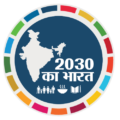In the grand tapestry of global development, few initiatives shine as brightly as the Sustainable Development Goals India Report (SDGs). As the world collectively strives towards a more sustainable and equitable future, India stands at the forefront of this monumental endeavor. With the framework set by the United Nations, India has embraced the SDGs, particularly Goal 12, “Responsible Consumption and Production,” with remarkable vigor and commitment.
Sustainable Development Goals: A Global Imperative
The Sustainable Development Goals, often referred to as SDGs, are an international call to action. They represent a universal commitment to end poverty, protect the planet, and ensure prosperity for all. While there are 17 distinct goals, they are intricately interconnected, forming a comprehensive roadmap for global development by 2030. These goals encompass diverse facets of society, from eradicating poverty (Goal 1) to ensuring access to clean water (Goal 6), and fostering sustainable cities (Goal 11).
At the heart of this global mission is Goal 12 – Responsible Consumption and Production. This goal focuses on promoting sustainable consumption and production patterns, a mission critical to achieving the overarching vision of the SDGs. In a world where resources are finite and the ecological footprint is expanding, the need for responsible consumption and production is more urgent than ever. This goal underscores the significance of reducing waste, increasing resource efficiency, and promoting sustainable practices across industries and communities.
The Sustainable Development India Report
As India pursues the 2030 vision encapsulated in “2030KaBharat,” the nation has taken significant strides towards embracing sustainable practices in consumption and production. The Sustainable Development India Report serves as a beacon of insight into the country’s journey and progress in this regard.
This comprehensive report is an invaluable resource for anyone seeking to understand the state of sustainable development in India Report. It meticulously details the achievements, challenges, and milestones that mark India’s progress in aligning with the SDGs. The report presents a holistic view of India’s commitment to responsible consumption and production, highlighting key statistics and case studies that illustrate the nation’s ongoing efforts.
SDG in India: Progress and Challenges
India’s pursuit of sustainable development is marked by notable progress in some areas and persistent challenges in others. Let’s delve into a few key aspects of responsible consumption and production in the Indian context:
- Reducing Food Waste: In a country where millions grapple with food scarcity, the imperative to reduce food wastage is clear. India has taken measures to minimize food loss, such as promoting efficient storage and distribution practices. Additionally, innovative startups are working on solutions to bridge the gap between surplus and demand, ensuring responsible consumption.
- Promoting Sustainable Manufacturing: India’s burgeoning manufacturing sector is pivotal to its economic growth. However, it also bears the responsibility of minimizing environmental impacts. Through stringent environmental regulations and incentives for green technologies, India is striving to ensure that production processes become increasingly sustainable.
- Resource Efficiency: Sustainable consumption and production entail the judicious use of resources. India has been working to improve resource efficiency across sectors, including water, energy, and raw materials. For example, the adoption of cleaner and more efficient technologies in agriculture and industry is reducing the carbon footprint.
- Sustainable Lifestyles: Encouraging sustainable lifestyles is a cornerstone of responsible consumption. In India, a growing awareness of eco-friendly practices has led to an upsurge in green consumerism. From organic farming to eco-conscious fashion, Indian consumers are making choices that align with the principles of responsible consumption and production.
India 2030: Navigating the Future Journey
India’s commitment to the SDGs is not merely a policy declaration but a steadfast journey towards a sustainable and prosperous future. “2030KaBharat” envisions an India where the fruits of development are accessible to all, where poverty and inequality are curtailed, and where the environment is protected for future generations.
The path ahead is not without its challenges. India must contend with population growth, resource constraints, and the pressing need for inclusive development. Yet, it is in facing these challenges that India’s commitment to the SDGs shines brightest. The nation’s efforts towards responsible consumption and production are central to this endeavor.
As India strides towards a more sustainable future by 2030, the commitment to Responsible Consumption and Production remains unwavering. With the Sustainable Development India Report as a guiding light, the nation is meticulously working to reduce waste, enhance resource efficiency, and promote sustainable practices across industries and communities. The road ahead is challenging, but with “2030KaBharat” as its compass, India’s journey towards a sustainable and prosperous future continues.
In the grand tapestry of global development, India’s commitment to responsible consumption and production is a shining thread, illuminating the path towards a sustainable India by 2030.
